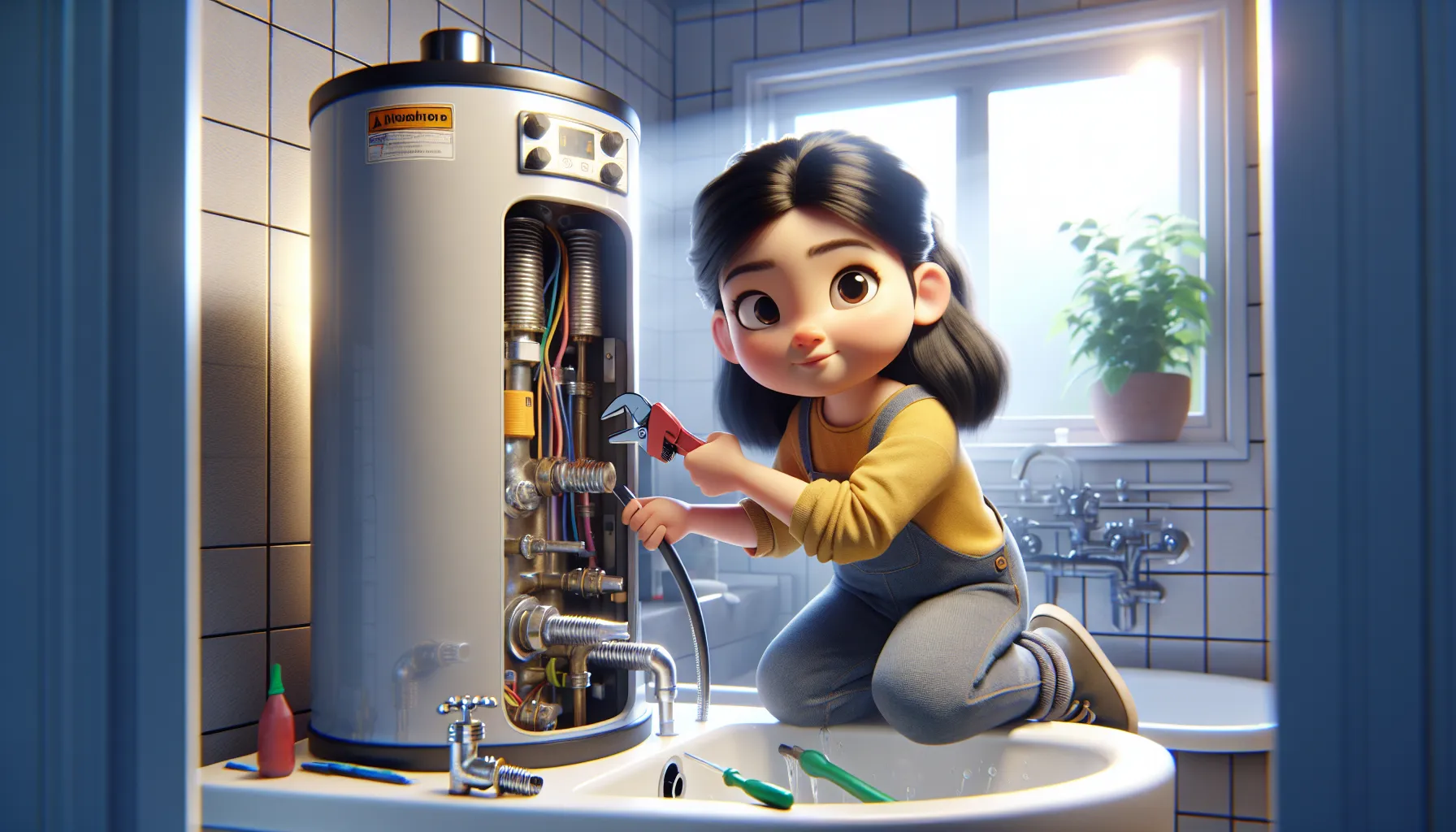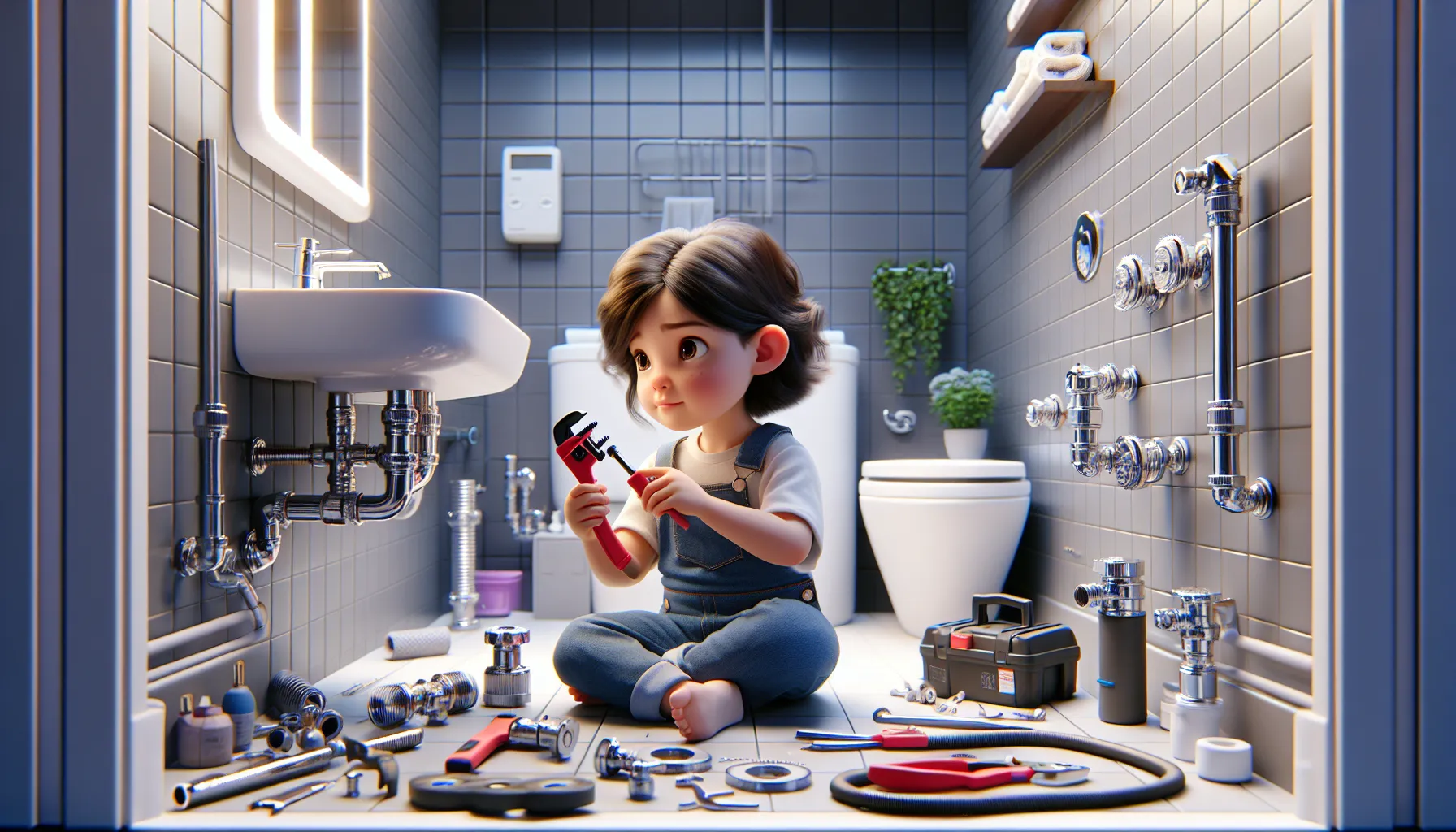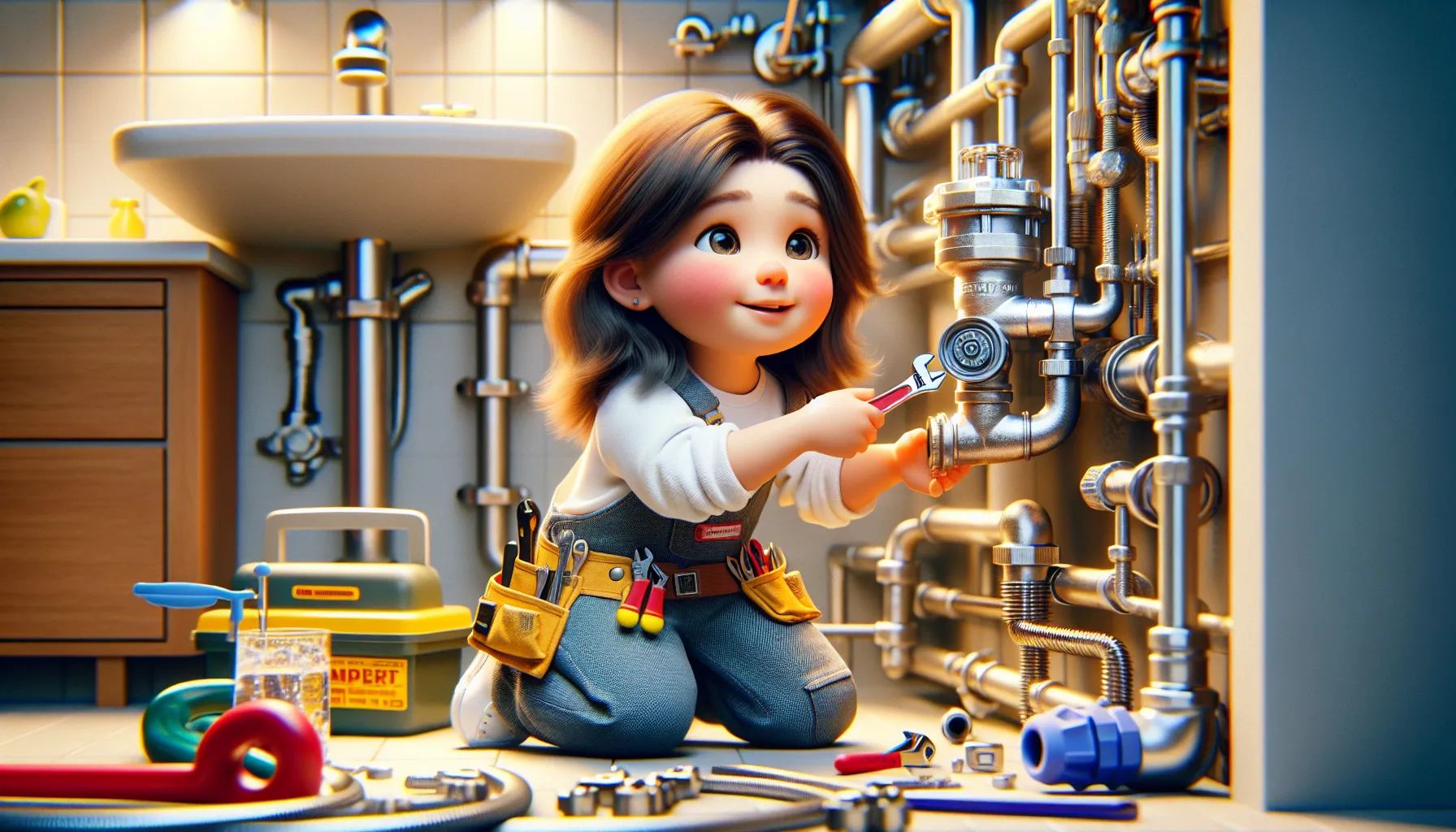Heater malfunction can wreak havoc in a household, and the water heater is no exception. As a crucial component of your home’s utility system, it’s important to recognize when it’s time to replace this necessary appliance. Ignoring warning signs can lead to water damage, increased energy bills, and even safety hazards.
Look out for seven unmistakable signs that indicate it might be time to retire your current water heater and invest in a new one. From strange noises and leaks to age-related inefficiencies, knowing when to part ways with your water heater can save you from costly repairs and potential disasters down the line.
Key Takeaways:
- Age: Water heaters typically last 8-12 years, so if yours is older, it may be time for a replacement.
- Rusty Water: If you notice rusty water coming from your faucets, it could be a sign of internal corrosion in your water heater.
- Noisy Tank: Loud noises coming from your water heater may indicate sediment buildup, which can lead to inefficiency and potential damage.
- Leaking Tank: Any signs of water pooling around your water heater should be addressed immediately to prevent flooding and damage.
- Inconsistent Temperature: Fluctuating hot water temperature could be a sign of a failing heating element in your water heater.
Understanding Water Heater Lifespan
If you’re considering replacing your water heater, it’s crucial to understand the lifespan of these imperative home appliances. Knowing how long you can expect your water heater to last can help you make informed decisions about maintenance and replacement.
Average Lifespan of Different Models
An average tank water heater typically lasts between 8 to 12 years, while tankless water heaters can have a lifespan of 20 years or more. Heat pump water heaters usually last around 10 to 15 years, and solar-powered water heaters can have a lifespan of 20 years or more with proper maintenance. Understanding the average lifespan of different water heater models can give you an idea of when it may be time to start considering a replacement.
Factors Affecting Water Heater Longevity
With regular maintenance and proper installation, water heaters can last for many years. However, several factors can affect the lifespan of your water heater.
- Water quality: Hard water can cause mineral buildup, reducing the efficiency and lifespan of the heater.
- Maintenance: Regular maintenance can prolong the life of your water heater by identifying and fixing issues before they escalate.
- Installation: Proper installation by a professional can ensure the optimal performance and longevity of your water heater.
Assume that these factors are taken care of, your water heater is likely to last longer.
Heater replacements can be costly, so it’s imperative to be aware of the average lifespan of different water heater models and the factors that can affect their longevity. By understanding these key points, you can take proactive steps to maintain your water heater and ensure it continues to provide hot water efficiently for years to come.
Sign 1: Inconsistent Water Temperatures
Any homeowner knows the frustration of trying to take a shower, only to be blasted with scalding hot water one moment and icy cold water the next. This inconsistency in water temperatures can be a clear sign that your water heater is in need of replacement. Read on to learn more about the causes of temperature fluctuations and how to assess your water heater’s thermostat.
Causes of Temperature Fluctuations
| Cause | Solution |
| Build-up of sediment in the tank | Flush the tank to remove sediment build-up |
| Malfunctioning heating element | Replace the heating element |
Assessing Your Water Heater’s Thermostat
The first step in assessing your water heater’s thermostat is to check the temperature settings. Heaters with inaccurate thermostat settings can result in inconsistent water temperatures. You can also test the thermostat by adjusting the temperature settings and monitoring the water temperature over time to see if it remains consistent.
Fluctuations in water temperatures not only make daily tasks like showering uncomfortable, but they can also be indicative of deeper issues with your water heater. It’s important to address these temperature inconsistencies promptly to avoid potential scalding or other safety hazards.
Sign 2: Reduced Hot Water Supply
Your water heater is a crucial component of your home, providing hot water for showers, laundry, and dishes. When you start noticing a reduced hot water supply, it could be a sign that your water heater is struggling and may need to be replaced. There are a few key factors that can contribute to this issue.
Sediment Build-Up and Its Impact
Sediment build-up is a common issue in water heaters that can reduce the amount of hot water available to you. Over time, minerals and debris can accumulate at the bottom of the tank, creating a barrier between the burner and the water. This can lead to decreased heating efficiency and ultimately result in less hot water being produced.
When to Consider Tank Capacity
Sediment Another factor to consider when experiencing reduced hot water supply is the tank capacity of your water heater. If your household has grown in size or your hot water usage has increased, your current water heater may no longer be able to keep up with the demand. In this case, upgrading to a water heater with a larger tank capacity can help ensure an ample supply of hot water for your needs.
It’s important to consider these factors when evaluating your hot water supply issues. If you notice a persistent decrease in hot water availability, it may be time to replace your water heater to meet your household’s needs.
Sign 3: Unusual Noises from the Tank
Noticing strange sounds coming from your water heater can be a clear indication that something is not right. Ignoring these noises can lead to further damage and potential water heater failure. It’s important to pay attention to any unusual sounds and address them promptly to avoid costly repairs or a complete replacement.
Identifying Common Sounds
Identifying the common sounds that your water heater might make can help you determine if there is a problem. Some common noises include popping, whining, banging, or rumbling sounds. These noises can be caused by sediment buildup, overheating, or a failing heating element. By recognizing these sounds, you can take action before the issue escalates.
When to Be Concerned About Noise
About knowing when to be concerned about noise, it’s important to consider the frequency and intensity of the sounds. If you hear occasional popping or cracking, it may not be a cause for immediate concern, as it could be due to the normal heating process and expansion of the tank. However, if you notice loud banging or rumbling noises on a regular basis, it could indicate a more serious problem that needs to be addressed by a professional.
Sign 4: Visible Leaks and Corrosion
Once again, when it comes to your water heater, visible leaks and corrosion are telltale signs that it may be time for a replacement. Ignoring these warning signs can result in more extensive damage and potential safety hazards in your home.
Detecting Water Heater Leaks
On occasion, you may notice puddles of water forming around the base of your water heater or water dripping from the unit itself. These visible leaks indicate that there is a problem with the tank and should not be overlooked. It is important to address leaks promptly to prevent further damage to your water heater and avoid potential flooding in your home.
The Role of Corrosion and Its Effects
Water heaters are susceptible to corrosion over time, especially if they are not properly maintained. Corrosion can weaken the tank walls and lead to leaks or even a burst tank, causing extensive water damage. Additionally, corrosion can affect the quality of the water coming out of the heater, posing health risks to you and your family.
This is why it is crucial to regularly inspect your water heater for any signs of corrosion and address them promptly. If you notice rust or corrosion on the outside of the tank or rusty water coming out of the faucet, it is a clear indication that your water heater may be nearing the end of its lifespan.
Sign 5: Cloudy or Discolored Water
To understand the signs that it’s time to replace your water heater, one crucial indication is when you notice cloudy or discolored water coming out of your faucets. This can be a clear sign that there is something wrong with your water heater, and it may need to be replaced.
Understanding the Causes of Discoloration
An accumulation of sediment or rust inside the water heater can lead to cloudy or discolored water. This can happen over time as minerals and other impurities build up inside the tank, affecting the quality of the water being heated. If left untreated, this can not only impact the water’s appearance but also its taste and safety.
Health and Safety Considerations of Contaminated Water
Contaminated water can pose serious health risks to you and your family. Water that is discolored may contain harmful bacteria, rust, or other contaminants that can be unsafe to drink or use for cooking. It’s crucial to address any water discoloration issues promptly to ensure the health and safety of everyone in your household.
Another important consideration is the potential for damage to your plumbing system. Contaminated water can cause corrosion and clogging in pipes, leading to costly repairs down the line if not addressed promptly. If you notice any discoloration in your water, it’s best to consult with a professional to determine the cause and take the necessary steps to resolve the issue.
Sign 6: Frequency of Repairs
All homeowners should pay close attention to the frequency of repairs when it comes to their water heater. If you find yourself constantly calling a plumber to fix issues with your unit, it may be time to consider replacing it. Keeping track of the repair history and costs can provide valuable insight into the overall health of your water heater.
Tracking Repair History and Costs
Frequency Keeping a detailed record of all repairs, including the dates and costs, can help you determine if the expenses are adding up and becoming too frequent. If you notice a pattern of increasing repair costs or the need for repairs every few months, it may be a sign that your water heater is reaching the end of its lifespan.
When Repairs Signal a Larger Issue
Signal While minor repairs are common with water heaters, frequent or major repairs can be a red flag for a more serious underlying issue. Ignoring these warning signs could lead to a complete breakdown, flooding, or even potential safety hazards in your home.
When A water heater that constantly requires repairs may have internal damage or corrosion that cannot be easily fixed. In some cases, the cost of repeatedly repairing an old unit may outweigh the benefits, and it may be more cost-effective in the long run to invest in a new, more efficient water heater.
Sign 7: Age of Your Water Heater
Deciphering the Serial Number for Age
Unlike other appliances in your home, deciphering the age of your water heater can be a bit more challenging. However, the serial number on your water heater can provide valuable information about its age. Manufacturers often encode the manufacturing date into the serial number, typically in the first four numbers or letters. If you’re unsure about how to decode the serial number, you can contact the manufacturer for assistance.
The Significance of Age in Replacement Decisions
One of the most critical factors to consider when deciding whether to replace your water heater is its age. Water heaters typically last between 8 to 12 years, depending on the type and maintenance. As your water heater ages, it becomes more prone to problems such as leaks, corrosion, and decreased efficiency. Older water heaters are also more likely to malfunction and cause costly damage to your home, making it important to consider replacement before a significant issue arises.
To make an informed decision about replacing your water heater, take into account the age of the unit along with its performance and any recent issues you may have encountered. By proactively replacing an aging water heater, you can avoid potential disasters and ensure a reliable supply of hot water in your home.
Maintaining Your Water Heater
Preventative Maintenance Tips
After investing in a quality water heater, it’s crucial to properly care for it to ensure longevity and efficiency. To prevent potential issues and extend the lifespan of your water heater, follow these preventative maintenance tips:
- Properly insulate your water heater to improve its energy efficiency.
- Regularly flush out the tank to remove sediment and prevent corrosion.
- Check and replace the anode rod as needed to protect the tank from rusting.
Though maintaining your water heater may seem overwhelming, these simple steps can make a significant difference in its performance and lifespan. Recall, a well-maintained water heater is less likely to require costly repairs or replacements in the future.
When to Schedule Professional Inspections
Schedule professional inspections for your water heater at least once a year to ensure it is operating efficiently and safely. A certified technician can identify any potential issues before they escalate, saving you from unexpected breakdowns and costly repairs. Preventative maintenance is key to catching problems early on and ensuring your water heater is functioning properly.
Regular professional inspections also provide peace of mind, knowing that your water heater is in good condition and less likely to pose any dangers to your home or family. Don’t wait until a small issue becomes a major problem—schedule regular inspections to keep your water heater running smoothly.
Upgrade Options and Considerations
Now let’s explore your options for upgrading your water heater. With advancements in technology, you have several modern water heater technologies to consider that can provide more efficient and reliable hot water for your home.
Exploring Modern Water Heater Technologies
Options for modern water heaters include tankless water heaters, heat pump water heaters, and solar water heaters. Tankless water heaters, also known as on-demand water heaters, heat water directly without the use of a storage tank. This results in a continuous supply of hot water and can save space compared to traditional water heaters with tanks.
Heat pump water heaters use electricity to move heat from the air or ground to heat the water, making them highly energy efficient. Solar water heaters utilize the sun’s energy to heat water, providing a sustainable and cost-effective solution for hot water needs.
Assessing Energy Efficiency and Cost Savings
Options for assessing energy efficiency and cost savings include looking at the Energy Factor (EF) rating of water heaters. The higher the EF rating, the more energy efficient the water heater is, which can lead to significant cost savings on your utility bills over time. Additionally, consider the upfront cost of the water heater versus the long-term savings it can provide.
Heater: When considering replacing your water heater, it’s vital to look at not only the initial cost but also the long-term energy savings and efficiency. By exploring modern technologies and assessing energy efficiency, you can make an informed decision to upgrade your water heater for improved performance and cost savings in the long run.
Conclusion
Conclusively, recognizing the signs that indicate your water heater needs replacing is crucial for preventing unexpected breakdowns and costly repairs. By being aware of indicators such as age, inefficient heating, leaks, strange noises, rusty water, and insufficient hot water, you can address issues promptly and avoid disruptions to your daily routine. Regular maintenance and timely replacement of your water heater can ensure a reliable supply of hot water and increase the efficiency of your home’s heating system.
Don’t ignore the warning signs that your water heater is failing; instead, take action to replace it before it causes further damage. Consulting with a professional plumber can help you determine the best course of action for your specific situation and ensure that your new water heater is installed correctly. By staying vigilant and proactive, you can avoid the inconvenience and expense of a sudden water heater breakdown and enjoy the benefits of a reliable and efficient heating system in your home.
FAQ
Q: What are some signs that indicate you need to replace your water heater?
A: If you notice rusty water, strange noises, leaks, a lack of hot water, or the age of your water heater is over 10 years, it might be time for a replacement.
Q: How long does a typical water heater last?
A: On average, a traditional water heater will last between 8 to 12 years. Tankless water heaters have a longer lifespan of around 20 years.
Q: What are the risks of not replacing a failing water heater?
A: Not replacing a failing water heater can lead to increased energy bills, leaks, flooding, or even health hazards from contaminated water.
Q: Can a water heater be repaired instead of replaced?
A: In some cases, minor issues like a faulty heating element or a broken thermocouple can be repaired. However, if the tank is corroded or leaking, it’s usually more cost-effective to replace the entire unit.
Q: What should I consider when choosing a new water heater?
A: When choosing a new water heater, consider the fuel type, size, energy efficiency, and recovery rate that best suits your household’s needs. It’s also a good idea to consult with a professional plumber for guidance.



